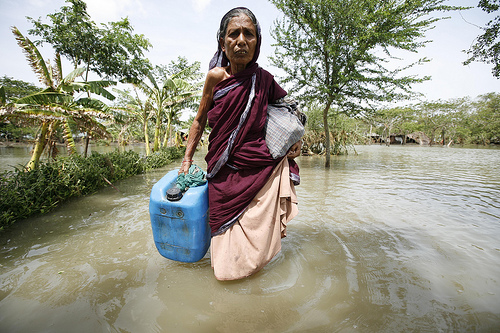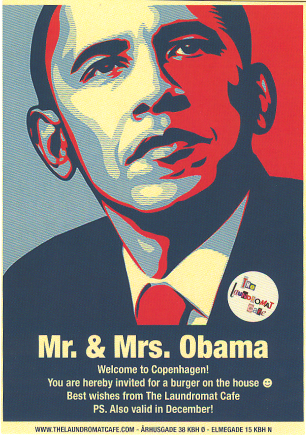How much money will the rich world muster to help poorer countries adapt to the devastating effects of climate change and curb their emissions? That’s one of the essential elements that negotiators must tackle at the Copenhagen climate summit next week. And the biggest question mark in the equation is the US, which has not yet specified exactly how much cash it’s prepared to kick in. Now John Kerry, the key senator in the climate debate, is urging the Obama administration to be more generous.
The proposed 2010 budget from the Obama administration would devote $1.2 billion per year to international climate funds. The Waxman-Markey bill that passed the House would direct about 7 percent of the revenues of a cap-and-trade plan to international adaptation and technology funding in the initial years, which could total around $5 billion per year by 2020, according to an analysis by Resources for the Future. The proposed Senate bill offers similar levels of funding.
Obviously, there’s a big difference between the numbers coming out of the White House and Capitol Hill. On Tuesday, Senate Foreign Relations committee chair John Kerry (D-Mass.) wrote to Secretary of State Hillary Clinton asking the administration to address the “large gap” between the Congressional figures and the budget. Kerry wants the US should kick much more than the amount forecast in the 2010 budget, in order to demonstrate its commitment to addressing the problem of climate change. He suggested $3 billion for 2011, routed through agencies like the United States Agency for International Development (USAID).
“[A]s we approach the Copenhagen climate change negotiations, the global community has agreed that $10 billion is required annually in fast-start financing to support immediate international climate change priorities,” wrote Kerry. “The United States must be prepared to contribute its fair share of this obligation.”
As we noted yesterday, the European Union is under fire for plans to redirect existing aid money to climate rather than finding new funds. The US, too, will be under pressure to commit significant amounts of new money to help the world’s most vulnerable nations. But in the middle of a lingering recession, this will be a tough political sell.















